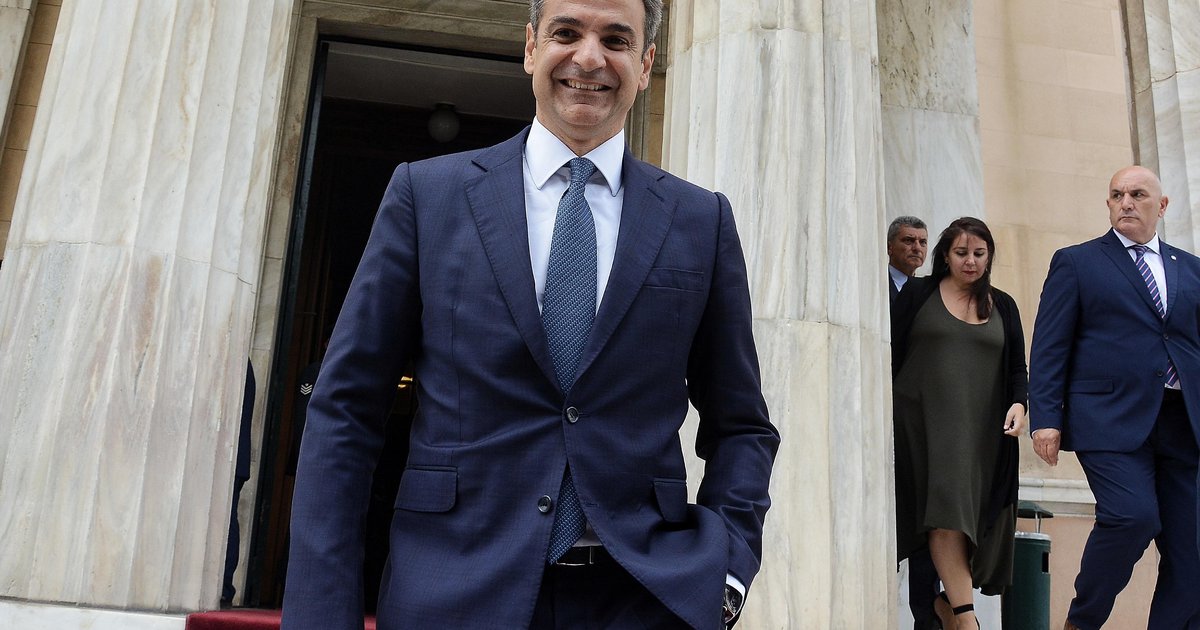
Meanwhile, private hospitals in Greece had not yet been commandeered to cope with the pandemic, while intensive care units were filling up. The restrictions on civil rights due to the pandemic assumed endemic characteristics, as also happened in the rest of Europe: a lockdown on civil rights. For the first time in the Third Hellenic Republic, assemblies were prohibited as a precaution with a ban issued by the chief of the Greek Police. The head of the Greek Orthodox Church – not any old bishop – shamelessly declared that “Islam is not a religion, but a [political] party”, while no official came forth to denounce this hate speech. Not even the Left! The church can say what it wants, but that does not apply to the rest of us. In social media, targeted censorship gathered apace.
State of emergency
Conjuring up the pandemic has proved to be a convenient argument for the implementation of extrinsic political goals in most European states. The pandemic has put a strain on democracy everywhere. The government wants to keep legislating as per normal, but also to restrict people’s constitutional rights by invoking a state of emergency. So, with the universities closed due to the pandemic, legislation was passed to station police on campus, in an environment where the TV channels pushed the image of educational establishments as dens of iniquity on a daily basis. Various public chatterers describe university professors as a “degenerate elite”, while not even trying to disguise their aversion for the Greek public university and the “left-wing hegemony” within it since 1974, the start of the regime change (Metapolitefsi) away from the seven-year junta. Police officers are constantly involved in increasing incidents of violence and abuse, thus prompting a wave of uproar and gatherings, which, like a self-fulfilling prophecy, appear as pretexts for the establishment of a neoconservative agenda of ‘law and order’. Hence, the country entered a spiral of increasingly deeper polarisation.
Accumulated crises
As is well known, Greek society has been in the vortex of consecutive crises for a number of years now. One crisis is nested inside the other, like the famous Russian matryoshka dolls. A crisis inside a crisis. In the past few years, and probably for the next few, too, it has been the memorandums and the refugee issue. A national debt of 200% of GDP no longer makes international headlines. Still, it’s there. Today, the country is in the vortex of the pandemic; tomorrow, it will be at the mercy of the entrenchment of poverty. To these issues, which are vital to our future, you can add a Europe that is faltering politically, with a far-Right constantly on the lookout, and Turkey going through an extended period of constitutional and geopolitical haze. Crises inside crises that alone can exacerbate division within the body politic. Crises that stir memories of past schisms, most of which have not been properly healed by consensus, but by force.
One would think that, in such a polarised context, the Greek government, whichever party it is, would have enough sense not to contribute to the creation of new sources of division. Alas, Dimitris Koufodinas, a member of the terrorist organisation, November 17, imprisoned for murder, started a hunger strike. From a trivial, technical issue of penitentiary policy relating to a prison transfer (an issue under the jurisdiction of the prison board or of the justice system), the hunger strike turned into a major stake in the country’s ideological and political division, scratching at the wounds of fossilised schisms of the twentieth century. During the hunger strike, which eventually ended on 14 March, without having satisfied the demands of the striker, whoever spoke of the necessity for the Greek state to respect the rule of law and not discriminate against any convict, as it did in this case, was labelled by pro-government media and certain government officials an “ally of the terrorists”.
Wasted trust
In April 2020, we had just completed our first month in a state of unprecedented lockdown. Greece’s health image was unbelievably good. This filled with courage and pride a society shaken in many ways, which attracted admiration for its performance for the first time after years and years of disrepute. Today, what we collectively felt last year through the disciplined stance that we subjected ourselves to, and that planted us in front of our TV screens at 6pm to listen to what a humble scientist had to say, now sounds absurd.
Trust was ingloriously wasted. The EU managed to set up perhaps the worst possible example for the management of the coronavirus crisis globally, and Greece arguably one of the worst examples among the member states. Today, people don’t even bother. They just experience a feeling of general futility due to the legislative disarray, contradictory announcements, backpedalling and ministerial appearances on TV, the frequency of which leaves one wondering when these politicians have time to work. And at the end of the tunnel, summer tourism is expected to save whatever can be saved.
Yet, with the evaporation of trust, obedience was no longer felt as a duty. Some continue to behave legally, or to act like it, but even they ask themselves what the point is.